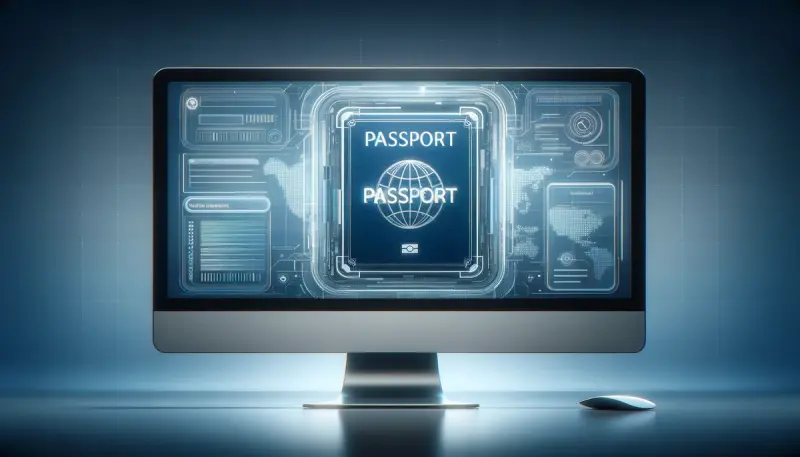Riley Kooh
Updated July 03, 2025
3 min
The Digital Government Revolution: A Global Perspective
Riley Kooh

Summary:
This blog highlights the shift towards digital governance in countries like the USA, UK, and Canada. The USA emphasizes digital record-keeping, the UK integrates unified digital logins, and Canada updates legacy systems for online services. These initiatives aim to improve efficiency, transparency, and citizen participation. Challenges include maintaining document integrity and security. The blog emphasizes the crucial role of Software Development Kits (SDKs) from Apryse in supporting this digital transformation, ensuring secure and efficient management of digital services.
Introduction
It’s undeniable that technology plays a critical role in our day to day lives. A recent study from Earnst & Young showed us that up to 70% of citizens see technology improving their access to and relationship with public services. In this article, we explore how countries like the United States, the United Kingdom, Canada, among others, are at the forefront of this digital transformation. The goal? Paving the way for a new era of governance that promises increased efficiency, transparency, and citizen participation. This shift, however, is accompanied by a set of challenges that require careful navigation, strategic planning, and the right tools for generating and securing such a large pool of digital documentation.
The International Drive Towards Digitalization
Although the movement towards a “digital first” ecosystem is a global affair affecting hundreds of countries, for the sake of concision in this article, we’ll highlight just a few examples.
USA’s Digital Record-Keeping

The U.S. National Archives and Records Administration (NARA) is advancing towards an all-digital government. This move is highlighted by the Transition to Electronic Records Memorandum, mandating that federal agencies manage and transfer their permanent records in digital formats to NARA after June 30, 2024.
The regulation sets detailed digitization standards including records management, documentation, quality control, metadata, file formats, and compression codecs. Agencies must validate their digital records for completeness and accuracy. PDF/A is recommended for textual documents, with specific raster formats for printed photographs. This transition aims to preserve paper records created digitally, emphasizing modern digital practices like digital signatures and online forms. NARA provides resources and guidance for agencies, contractors, and vendors to comply with these standards, working with GSA to facilitate the transition to digital government.
UK’s Unified Digital Login

The UK government's 2022-2025 digital and data roadmap focuses on transforming public sector technology amid challenges from the COVID-19 pandemic, leadership changes, and economic impacts of the Ukraine war.
The roadmap emphasizes digitalization and data utilization, including plans like 'One Login for Government' and improved data sharing. This digitalization will streamline processes, making public services more efficient and accessible, particularly through data platforms and cloud technology. Improved data sharing across departments will enhance decision-making and service accessibility, and once in place, these efforts will reduce government administrative burdens and improve citizen experiences through digital transformation.
Canada’s Digital Passport Services & Other Legacy Systems

Under current leadership, Canada is progressing towards a digital infrastructure.
This initiative will enable Canadians to access more federal services online, including passport applications. The roadmap also emphasizes the use of new technologies like artificial intelligence to enhance customer service experiences.
Despite concerns, digital options will not replace in-person and telephone services. The digital shift includes updating legacy systems like the Old Age Security payments, which currently rely on outdated infrastructure. The overarching aim to these updates are to make service delivery faster, more secure, user-friendly, and transparent, with public data on service standards and wait times.
So, What Does a “Digital First Government” Actually Mean?
Internal Impacts on Governments:
- Increased Efficiency and Cost-Effectiveness: Digital governments operate with greater efficiency, reducing the time and costs associated with traditional, paper-based methods. This is evident in the USA's push for digital record-keeping, which streamlines the management and transfer of records.
- Improved Data Management: Digitalization facilitates better data collection and analysis, aiding in more informed policymaking and decision-making. The UK’s unified digital login and data sharing initiative exemplifies this, enhancing internal decision-making processes.
- Enhanced Inter-Departmental Collaboration: Digital platforms and data sharing protocols, like those planned in the UK, allow for improved collaboration between different government departments, leading to more coherent and unified governance.
- Investment in Infrastructure: The transition necessitates significant investment in digital infrastructure, requiring governments to allocate resources for technology development, maintenance, and upgrades.
- Change Management Challenges: Shifting to digital systems involves a cultural change within government bodies, necessitating training, adaptation, and a shift in traditional operational models.
External Impacts on Citizens and Businesses:
- Accessibility and Convenience: Digital services, such as Canada's online passport application process, allow citizens to access various government services conveniently and quickly, enhancing user experience.
- Increased Transparency and Accountability: Digital records and services facilitate greater transparency in government operations, giving citizens better insights into governmental decisions and actions.
- Business Efficiency: For businesses, digital governments mean streamlined processes in areas like regulatory compliance and government contracting, saving time and resources.
- Innovation Opportunities: The digital transformation opens avenues for technological innovation and fosters private sector collaboration in developing new digital solutions.
- Bridging the Digital Divide: While digital services offer convenience, there's a need to ensure equitable access for all citizens, including those with limited tech proficiency or access.
How Can SDKs Help Government Digital Transformation?

Just as any major new change, the first step is laying the foundation to build upon. In order to incorporate millions of new digital processes, form fills, document generations, storage, extraction, etc., it’s vital to ensure the correct infrastructure is in place that can handle these increased volumes. This is where Software Development Kits (SDKs) come into play. So, let’s dive into exactly how SDKs from Apryse can assist in the digital transformation of public services.
Accessibility: Apryse SDKs specialize in managing and processing various document formats, crucial for maintaining digital records as per the standards like those set by the U.S. NARA. This includes the ability to handle formats such as PDF/A, essential for text-based documents, and ensuring the integrity and readability of digital records over time.
Robust Security Features: Security is paramount in government digitalization. Apryse SDKs provide strong encryption and security capabilities, ensuring that sensitive data and documents are protected against unauthorized access and cyber threats. This is particularly relevant in safeguarding personal data in systems like Canada’s digital passport services.
Want to read more about digital security in the public sector? Check out our recent article here.
Data Extraction and Analysis: For effective decision-making and data management, as highlighted in the UK's digital roadmap, Apryse SDKs can automate the extraction and analysis of data from documents. This feature aids in the aggregation and interpretation of large datasets, driving informed policy decisions.
Customizable Workflows: Governments require flexible solutions to meet their diverse needs. Apryse SDKs offer customizable workflows, allowing governments to tailor applications to their specific processes and requirements, whether it's in record-keeping, citizen services, or inter-departmental communication.
Integration with Cloud and Data Platforms: As governments like the UK and Canada move towards cloud technology and improved data sharing, Apryse SDKs facilitate the integration of government services with cloud platforms and data ecosystems, enhancing accessibility and efficiency.
Digital Signature and Authentication: In line with modern digital practices, such as digital signatures and identity verification, Apryse SDKs provide functionalities for secure digital signing and authentication. This is vital for legal documentation and online forms, ensuring authenticity and non-repudiation.
Interactive Forms and Data Collection: For services like online applications and feedback forms, Apryse SDKs offer tools for creating interactive forms, facilitating easy data collection and enhancing the user experience for citizens.
Scalability and Performance: As governments evolve and scale their digital services, Apryse SDKs provide scalable solutions that can handle increased loads and complex tasks without compromising performance. This ensures that digital government platforms remain efficient and reliable over time.
Interested in learning more about how Apryse scales with their clients? Click here to read how Apryse helped Egress provide eSignature solutions for over 17,000 businesses.
User-friendly Interface Development: Apryse SDKs aid in building intuitive and easy-to-navigate user interfaces for government applications, enhancing the overall experience for citizens and ensuring that they actually use their digital services.
Conclusion
In conclusion, the digital government revolution is reshaping governance globally with enhanced efficiency, transparency, and citizen engagement. Countries like the USA, UK, and Canada exemplify this shift, embracing digital record-keeping, unified logins, and digital services. However, success hinges on overcoming challenges such as ensuring document integrity, security, and equitable access. SDKs like Apryse's play a pivotal role, providing robust, scalable solutions for document management, data security, and integration with modern technologies. This digital transformation, while complex, is paving the way for a more responsive, accountable, and citizen-centric government.


